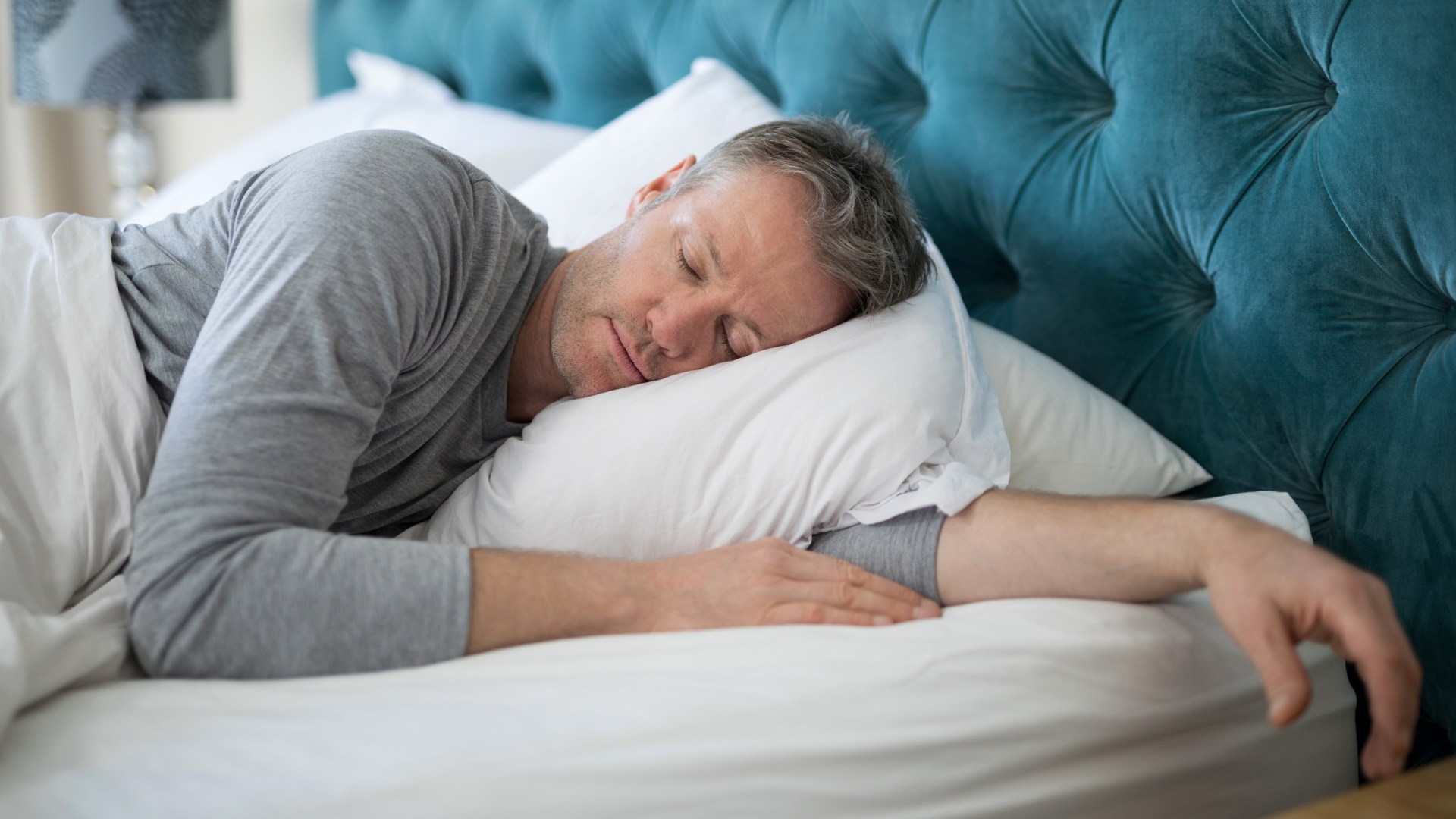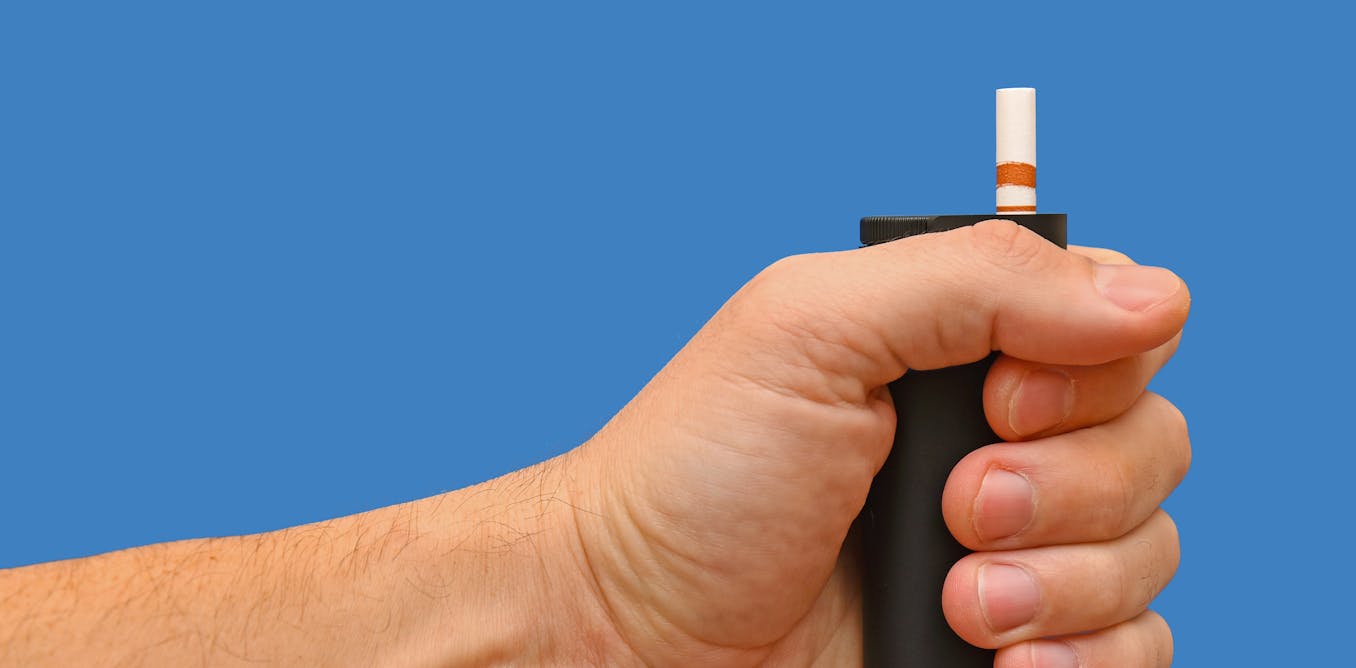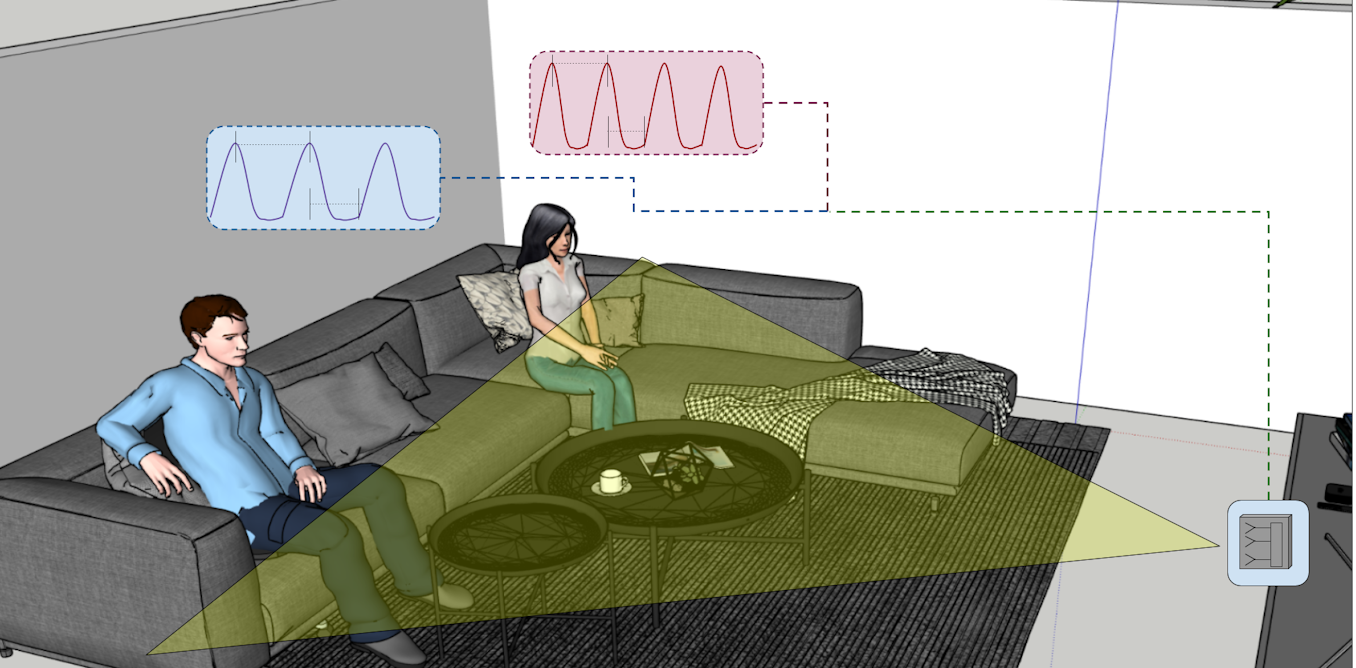WE’RE a very restless nation.
One in three of us have trouble drifting off every week – and the problem only gets worse from midlife onwards.

2
But it doesn’t have to be that way, according to NHS doctor, Karan Rajan.
To help you fall asleep in “less than five minutes”, he suggests trying something called cognitive shuffling.
Essentially, it’s a method for deliberately scrambling your thoughts, so they make no sense.
In a video shared on TikTok, Dr Karan called it the “biological version of holding down the power button”.
“When you’re in bed, it’s easy to get into repetitive disrupting thought patterns,” he said.
“This can trigger a stress response which keeps you awake.
“The more you’re awake, the more unwanted thought patterns you get meaning less sleep.”
But cognitive shuffling can break this horrendous cycle of overthinking.
“It does this by taking away your active cognitive effort,” he said.
“This is the human brain version of picking ‘shuffle’ on your mind Spotify playlist versus having to manually change the song every time – less stress.”
To do cognitive shuffling you think of a word, any word.
And then you have to try to think of as many words as possible starting with each letter of that word.
It’s important to ensure the sequence is truly meaningless, otherwise you’ll drift back into rumination.
Dr Raj said: “Start by picking a random word like ‘bedtime’ and for each letter of that word think of another word starting with that letter and visualise it.
“So start by thinking of words beginning with ‘B’ until you get bored: ‘baby’, ‘big boss man’, ‘butter’, ‘banana’, ‘Belgium’, ‘beer’, ‘baseball’.

2
“It’s also important you visualise the words because it’s like you’re simulating micro dreams.
“Those are the fleeting images that occur as you transition to sleep.
“Once you’re bored of one letter, move on to the next.
“This trick helps to calm racing thoughts. So if your sleep software is malfunctioning, it’s worth giving it a go.”
Also known as Serial Diverse Imagining (SDI), cognitive shuffling was designed by university professor Dr Luc P Beaudoin, from Simon Fraser University in Canada.
The NHS says that adults need between seven and nine hours of sleep every night to stay healthy.
Top 10 tips to help you get the best rest possible – including when to have your last coffee
Dr Michael Breus — aka The Sleep Doctor — offers ten tips to ease your passage to the Land of Nod.
1. WAKE up at the same time, seven days a week.
No matter how bad a sleep you had the night before, keep your wake-up time structured — this helps keep your circadian rhythm in alignment.
It also lets your body know when to “turn on” the melatonin (a sleep hormone) and when to keep it off.
2. DOWN a pint of water after waking. Once you get up, it is recommended you drink at least 400ml of water.
Sleeping dehydrates you, so you need to hydrate when you wake up.
3. AVOID naps. While Dr Breus loves to nap while watching golf on the weekends, he recommends that anyone struggling with insomnia avoid naps.
4. DON’T go to bed early.
It seems counterintuitive, but hitting the duvet before time doesn’t help.
Just because you had a mentally exhausting day at work or are physically tired from exercise, it doesn’t mean your body needs rest early.
5. TAKE off make-up when you get home.
Most people turn on the bathroom light to clean their face, but this exposes you to blue light, which can suppress sleep-inspiring melatonin.
6. KEEP it cool. Whether it’s opening a window slightly or getting a lighter duvet, staying cool at bedtime will help you to fall asleep.
Your body releases melatonin only after it has hit a core body temperature peak, and then drops.
If it is too hot in the bedroom, there is no drop and subsequently no melatonin.
7. CUT off the caffeine. Dr Breus recommends stopping your caffeine intake by midday, or by 2pm at the latest.
Caffeine has an effect that lasts six to eight hours, depending on your age, so it is important to clear your system in plenty of time.
8. GRATITUDE list. Data shows that if you do something pleasurable before bed, you will sleep quicker.
If you have a million thoughts in your head, thinking about things you are grateful for is a top distraction tool.
It doesn’t need to be long or challenging — just bring on the good vibes.
9. NO alcohol three hours before bedtime.
Limit yourself to two alcoholic beverages a night and make sure they are finished three hours before bed.
That provides enough time for it to be out of your system for a great sleep. It also allows you to still enjoy your meal.
10. GET plenty of exercise.
A prescribed daily dosage of 15 minutes of cardio and a further 45 minutes of weights is proven to improve sleep quality.




